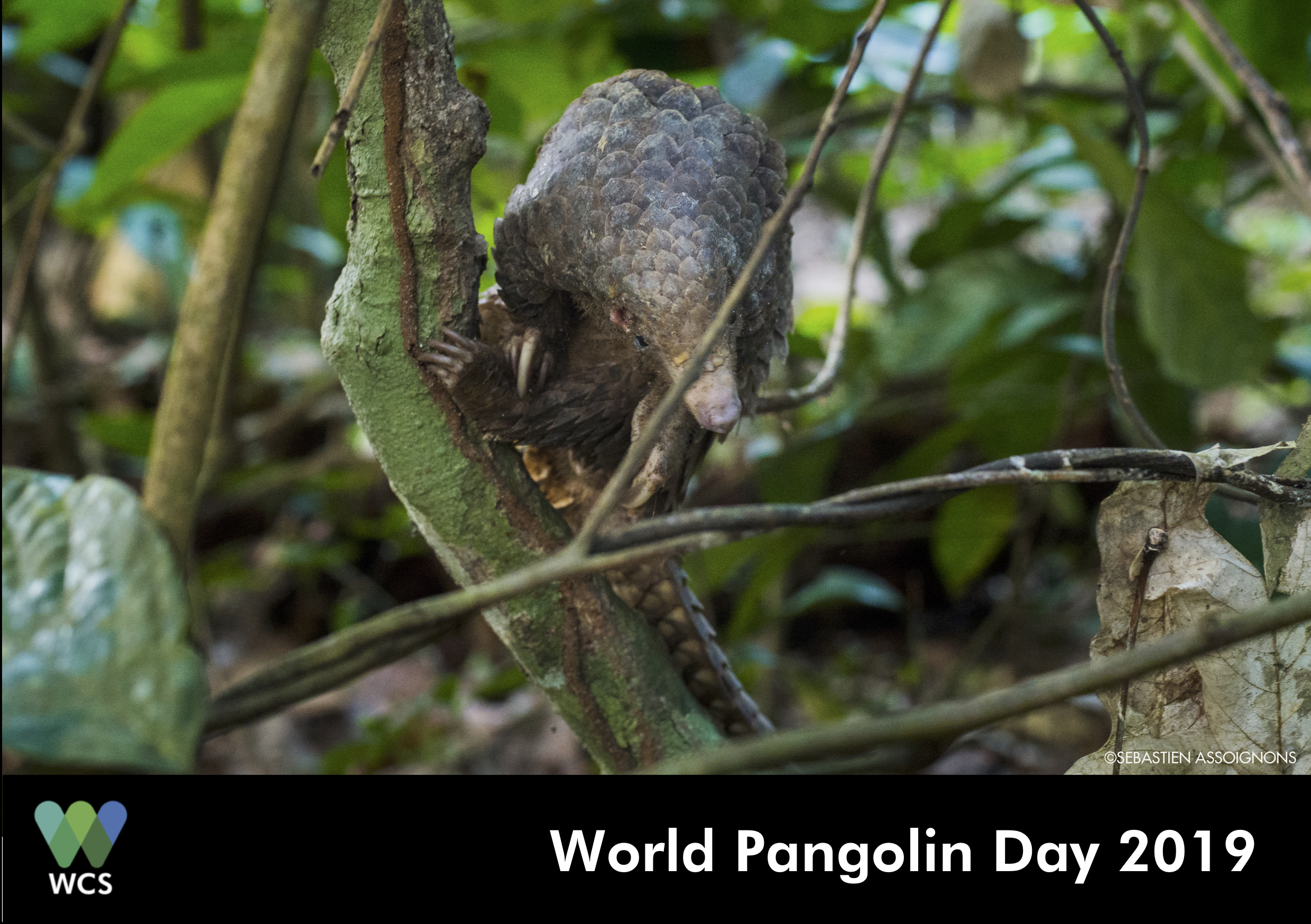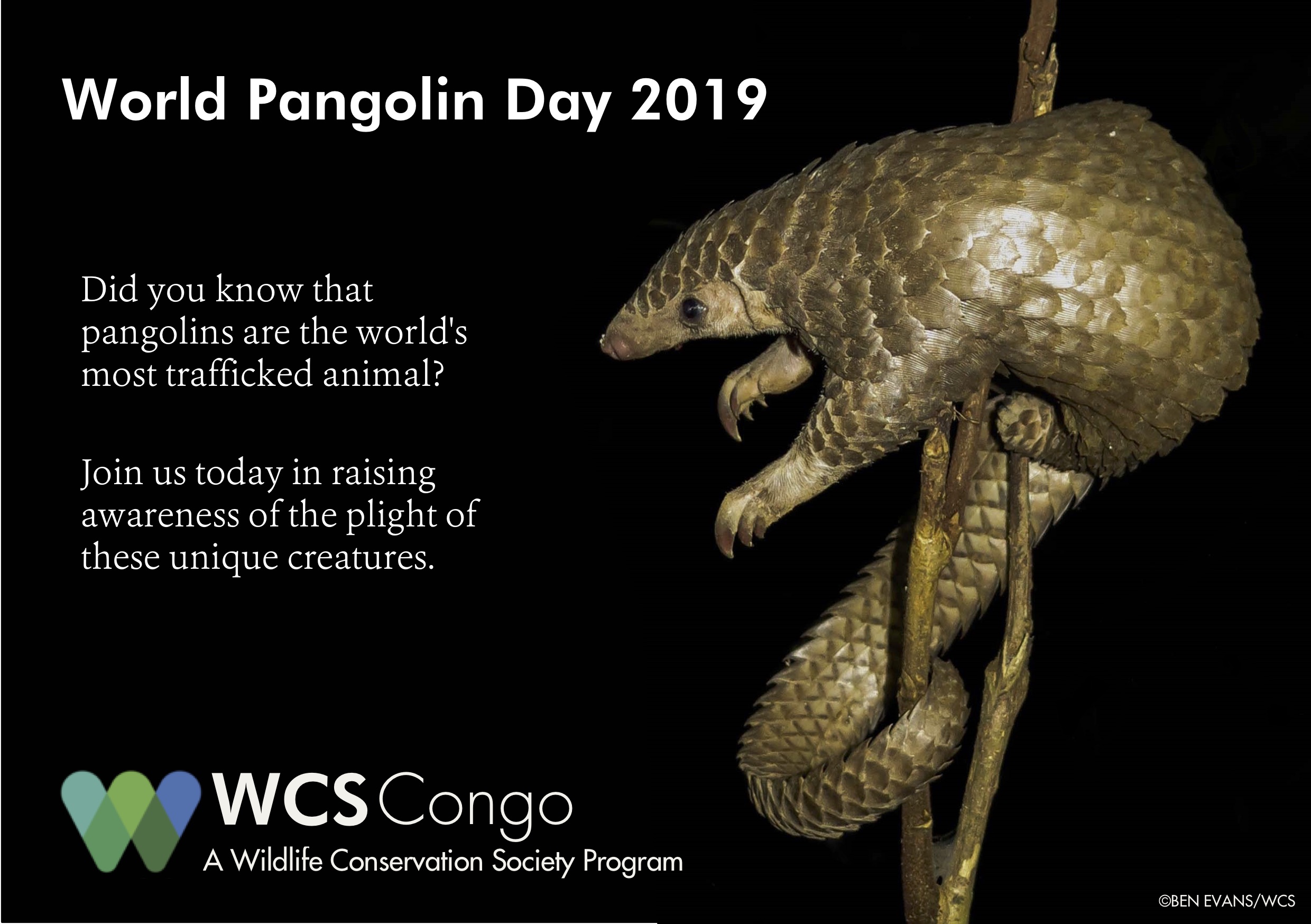
World Pangolin Day
Pangolins are now considered to be the most trafficked animal, not only in the Republic of Congo, but across the globe. Population numbers of these scaly mammals are declining across Africa and Asia due to the high demand for pangolin scales and meat, which are used in traditional medicine and considered to be a delicacy in countries like China and Vietnam. It is estimated that over a million pangolins have been poached in the last decade, with a pangolin killed in the wild every five minutes to supply the demand for their meat and scales. It is no surprise that all eight species of pangolins, including the three found in Congo, are now considered to be threatened by extinction.
This year, in the lead up to Pangolin day a record haul of pangolin scales and ivory was seized in Hong Kong, when a refrigerated shipping container from Nigeria, said to contain frozen meat, was intercepted on its way to Vietnam. The seizure included scales of an estimated 13,000 pangolins captured from Africa’s forests, and 1,000 ivory tusks – equating to around 500 elephants. A study published last yearby scientists from the Universities of Stirling and Sussex, working in collaboration with the Wildlife Conservation Society, suggests that wildlife traffickers are now also taking advantage of remote ivory trade routes to smuggle pangolins out of Central Africa.The study additionally found that the high international price of pangolin scales was driving up local costs, resulting in pangolin poaching and trafficking becoming a lucrative activity in Africa’s forests and cities.
”The WCS Central Africa team are working with partners, local and national, to help combat the trafficking and sale of pangolins and their scales, using a variety of innovative methods by leveraging conservation and law enforcement knowledge.
In Congo, pangolins are still sold as meat in markets in urban areas, and trafficked out of the country to neighbouring Cameroon and Democratic Republic of Congo, despite the national protected species status of two of the three pangolin species found in the country. In the past the illegal trade of bushmeat in urban areas, as well as the trade of pangolin scales has often been overlooked in Central Africa. Law-enforcement in Congo’s protected areas, and the vast forests surrounding them, on its own is not enough of a deterrent to stem the flow of wildlife out of the country’s wild places. To tackle these issues, the WCS Central Africa team are working with partners, local and national, to help combat the trafficking and sale of pangolins and their scales, using a variety of innovative methods by leveraging conservation and law enforcement knowledge.

WCS recently launched a study to better understand the illegal trafficking of pangolins (scales and meat), bushmeat and other protected species in the cities of Brazzaville and Pointe Noire in the Republic of Congo, and Kinshasa in the Democratic Republic of Congo. Workshops and group discussions have been held in the three cities, involving over 100 people from various sectors, including customs, police, forestry ministries, universities, civil aviation, public and legal institutions, hoteliers, and traditional doctors. During these workshops the different transit and destination routes for wildlife products were mapped, and the different actors involved in this illegal trade identified. In the long term, these studies will shed light on the networks, actors and products involved in the illegal wildlife trade in Congo’s urban areas – information that will feed back into the development of wildlife crime prevention strategies to help protect Congo’s phenomenal biodiversity.


Rania Alsabbagh
Didnt know the scale of how severe this problem has gotten, thank you for sharing and for your work.